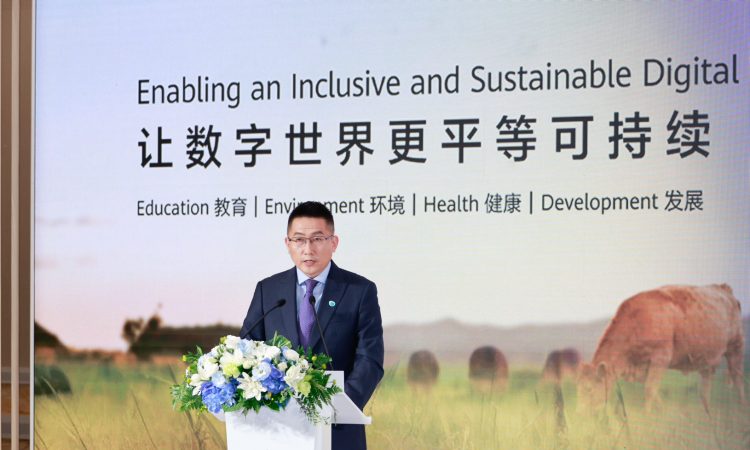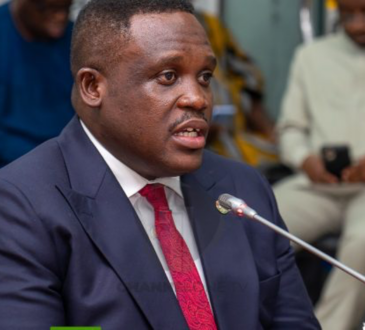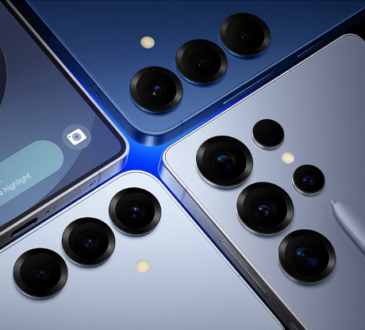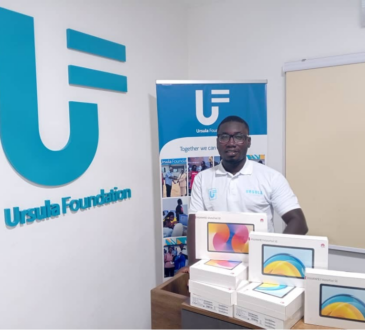
Huawei is dedicated to fostering digital inclusion across individuals, households, and organizations, thereby facilitating a comprehensive integration into an intelligent, interconnected world, Jeffrey Zhou, President of ICT Marketing has emphasized.
According to him, in the company’s pursuit, it recognizes the imperative of narrowing the digital gap and advancing sustainable progress. This endeavor necessitates not solely the widespread adoption of digital technologies but also a concerted collaboration with strategic partners.
“Huawei is committed to bring digital to every person, home and organization for a fully connected, intelligent world. In practice, we are deeply aware that bridging the digital divide and promoting sustainable development requires not only the wide application of digital technologies, but also the close cooperation of partners.”
He noted that digital technologies are swiftly transforming global landscape, yielding substantial enhancements in efficiency and productivity across various industries and societal domains. Nevertheless, amidst the expeditious progress of the worldwide digitization phenomenon, a concurrent observation reveals a discernible widening of the digital divide.
“Let’s join hands to make the best use of digital technology, promote digital inclusion, and make the digital world more equal and sustainable.” He said this at the 2023 Corporate Sustainability Development Forum in Dongguan, China.
The board chairman of Huawei, Liang Hua underscored the necessity of reinforcing network infrastructure to drive connectivity and digital inclusion.
He emphasized connectivity’s pivotal role in simplifying lives, fortifying economies, and fostering environmental sustainability. Hua asserts that stable connectivity should be universally accessible, framing it as a cornerstone of the digital economy.
Huawei’s commitment to expanding connectivity is evident in their partnership with International Telecommunication Union ITU, aiming to bring connectivity to remote areas in over 80 countries by 2025.
The Secretary-General at ITU, Doreen Bogdan-Martins also disclosed that only 15% of the targets of the UN Sustainable Development Goals are on track to be achieved by 2030, and because digital technologies can accelerate progress on 70% of these targets, if harnessed responsibly.
According to her, to meet this challenge and opportunity, ITU focuses its efforts on two key areas of action: universal connectivity and sustainable digital transformation.
“Commitments like these have galvanized us to set a new target US$100 billion for meaningful connectivity and sustainable digital transformation globally by 2026.
She appealed to stakeholders to follow Huawei’s example and make a pledge, which they should not backtrack, not when 1/3 of humanity is still offline. “We have to be bold, and we have to be ambitious, and we have to be inclusive, welcoming all voices and all perspectives, including that of young people.”
Further she asserted that the world is standing at an inflection point in tech history. “What we do next will matter for generations to come. Let’s not choose between tech and sustainable development. We need both.”
Dr. Cosmas Luckyson Zavazava Director, Telecommunication Development Bureau, ITU on his part noted that future digital leaders need tools and knowledge, as well as real project experience.
Youth-led projects, he stated are poised to have significant impact, not merely for them, but for their communities.
To him, the ITU-Huawei project has been carefully planned to deliver significant outcomes, comprising firstly, a structured mentorship to nurture leadership potential and turn innovative ideas into real projects.
Secondly, it involves promoting digital inclusion and delivering technology enablers to support implementation of the Sustainable Development Goals.
ITU and Huawei are jointly fostering youth leadership through mentorship programs and initiatives aimed at digital inclusion to drive impactful change.
“Today’s youth are true digital natives. They carry new perspectives and new ideas. We want the youth to dismantle barriers, build bridges, and set audacious goals for themselves and for others.
Through the ITU and Huawei joint effort, they will learn, contribute, and lead in the digital-first world. A powerful digital ecosystem is a prerequisite for accelerating the achievement of SDGs. We want the youth to push the envelope on the evolving global digital ecosystem and make their contributions.”
Ghana’s first lady, Rebecca Akufo-Addo touted Huawei for their continuous support to her country, maintaining “Huawei is indeed contributing meaningfully to stimulating the Ghanaian economy. I can truly say that my office’s experience working with Huawei has been encouraging. Together, we have worked tirelessly in building the skills capacity of females in rural areas, over 6000 students and traders have been trained in a period of two years.” She remarked.







